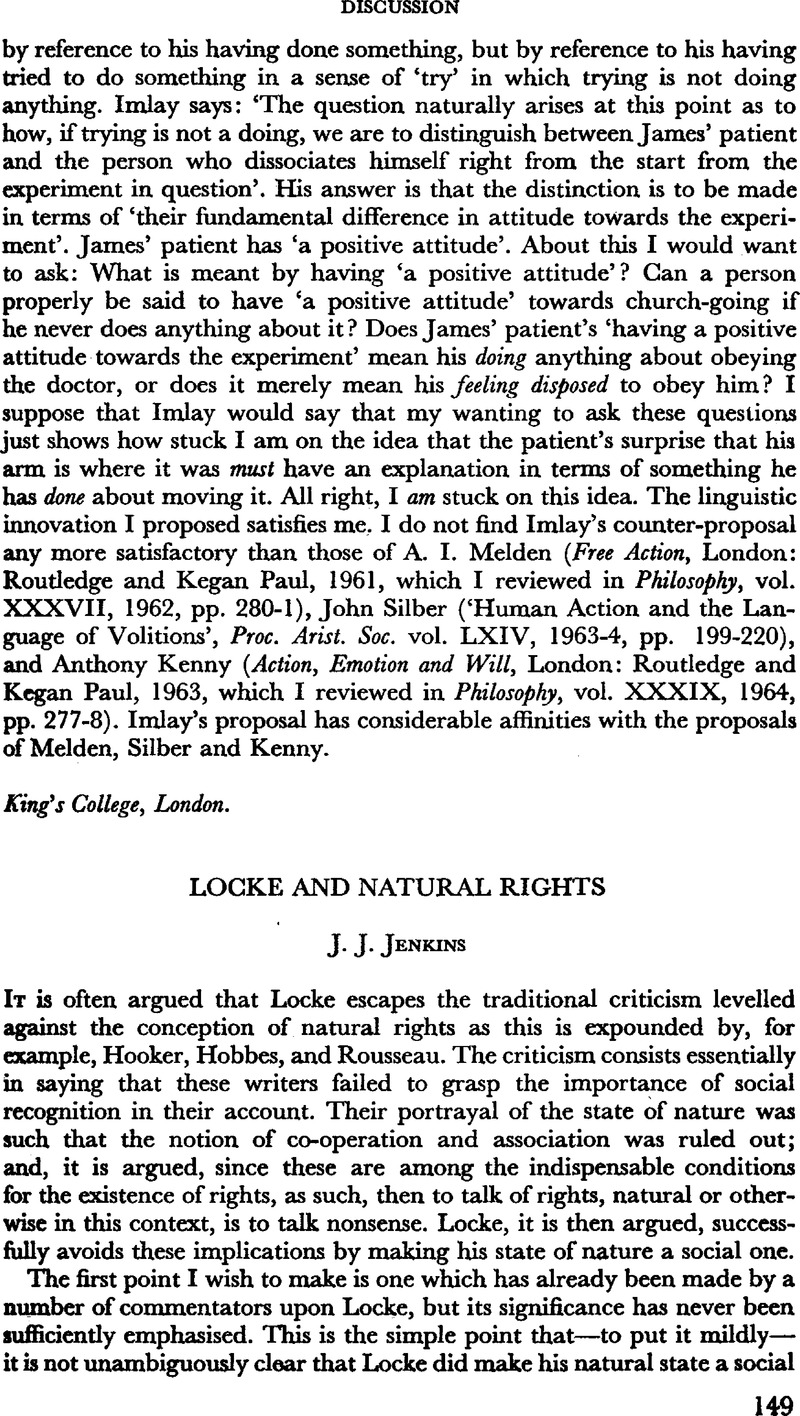Article contents
Locke and Natural Rights
Published online by Cambridge University Press: 25 February 2009
Abstract

- Type
- Discussion
- Information
- Copyright
- Copyright © The Royal Institute of Philosophy 1967
References
page 150 note 1 Loc. cit., par. 19.
page 150 note 2 Loc. cit.
page 150 note 3 Edition of the Second Treatise and A Letter Concerning Toleration, by Gough, J. W.. (Basil Blackwell, 1946), p. 152.Google Scholar
page 150 note 4 Second Treatise, par. 21. It is perhaps significant that the passage in which this quotation occurs was deleted from one state of the first edition of the Two Treatises. See Laslett, Peter, John Locke: Two Treatises of Government. (Cambridge, 1963), p. 300, footnote to par. 21. See also, by the same author, ‘The 1960 Edition of Locke's Two Treatises of Government’ in Transactions of the Cambridge Bibliographical Society (1952).Google Scholar
page 150 note 5 Lectures on the Principles of Political Obligation, p. 80, par. 65.
page 151 note 1 Second Treatise, Chapter II, par. 8.
page 152 note 1 Leviathan, Chapter XIII.
page 152 note 2 Second Treatise, op. cit., par. 19.
page 152 note 3 Second Treatise, Chapter IX, par. 123.
page 153 note 1 Yet the most reputable of commentators continue so to defend him. See, for example, Benn, S. I. and Peters, R. S.: Social Principles and the Democratic State (George Allen & Unwin Ltd., 1959), p. 97 ff.Google Scholar
page 153 note 2 See John Locke: Essays on the Law of Nature, ed. von Leyden, W. (Oxford, 1954).Google Scholar
page 154 note 1 Op. cit., p. 151.
page 154 note 2 Op. cit., p. 163.
page 154 note 3 Op. cit., p. 167.
page 154 note 4 Op. cit., p. 177.
page 154 note 5 Op. cit., p. 80—a view cautiously implied rather than asserted explicitly.
- 2
- Cited by


